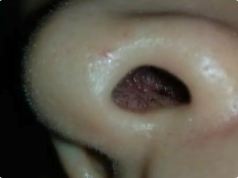Even when expected, the emotional weight can feel overwhelming.
But what if you could recognize the signs — not to rush the process, but to be fully present during their final days?
While every person’s journey is unique, there are common, meaningful signals that often appear as a loved one approaches the end of life. These aren’t always medical — they’re emotional, spiritual, and psychological — and they can help you prepare, say what needs to be said, and offer comfort in the most peaceful way possible.
Here are three powerful signs that your parent may be nearing the end — and what you can do when you see them.
1. Frequent Dreams About Deceased Loved Ones
One day, your parent says:
“Your grandmother came to me last night. She looked so peaceful. She told me it’s almost time.”
At first, you might dismiss it as a dream — or confusion.
But if they repeatedly mention visits from loved ones who have passed, it may be more than imagination.
This phenomenon is well-documented in palliative care.
Many dying individuals report vivid, comforting dreams or visions of deceased family members, friends, or even pets — often describing them as more real than waking life.
💡 What It Means:
- They may be mentally and emotionally preparing to join those they’ve lost.
- It’s not a sign of delirium — it’s often a peaceful transition into the next phase.
- These visions bring comfort, reassurance, and a sense of reunion.
❤️ How to Respond:
- Listen without judgment. Don’t correct or dismiss their experience.
- Ask gently: “What did they say?” or “How did it make you feel?”
- Let them share — it may be their way of saying goodbye.
2. Open Discussions About Their Funeral or Final Wishes
Your parent, who once avoided talking about death, now brings up their funeral with surprising calm.
They say things like:
“I want to be cremated.”
“Play that old jazz song at the service.”
“Don’t spend too much on flowers — give the money to charity.”
These conversations can be jarring.
But they’re often a clear sign of acceptance.
💡 What It Means:
- They’re coming to terms with their mortality.
- They want control, dignity, and peace in how they’re remembered.
- Talking about death is their way of relieving your burden — so you won’t have to guess their wishes.
❤️ How to Respond:
- Honor their voice. Write down their wishes — it’s a gift to your future self.
- Plan together — visit cemeteries, choose music, or write a eulogy draft.
- Reassure them: “I’ll take care of it. You don’t have to worry.”
This isn’t morbid — it’s love in action.
3. Sudden Health Improvement After Long-Term Sickness
After weeks or months of decline — barely eating, weak, bedridden — your parent suddenly:
- Asks for their favorite meal
- Sits up on their own
- Recognizes family members
- Shares a joke or tells a story
It’s easy to feel hope.
“Maybe they’re getting better!”
But this unexpected burst of energy may be a phenomenon known as terminal lucidity — a well-documented, often temporary return of mental clarity and physical strength shortly before death.
💡 What It Means:
- The body may be making a final surge of energy before shutting down.
- It’s not a recovery — it’s a last window of connection.
- Many families describe it as a gift — a chance to say “I love you,” “I forgive you,” or simply hold hands one more time.
❤️ How to Respond:
- Be present. Don’t leave the room, even if they seem fine.
- Speak from the heart. Say what matters.
- Invite loved ones to visit — this moment may be brief.
And when the energy fades, know this:
👉 They got to say goodbye — and so did you.
Supporting Your Loved One in Their Final Days
When you see these signs, your role shifts from caregiver to companion on a sacred journey.
Here’s how to honor their final chapter:
✅ Create a peaceful environment – Soft lighting, familiar photos, favorite music
✅ Keep them comfortable – Manage pain with medical support, keep skin clean and dry
✅ Talk, touch, and stay close – They can often hear and feel love, even in silence
✅ Let them lead – Follow their cues, not your fears
✅ Seek hospice support – Professionals can guide you with dignity, compassion, and 24/7 care
Final Thoughts: Love Doesn’t End — It Transforms
Seeing these signs doesn’t mean you’re giving up.
It means you’re paying attention.
You’re honoring their process.
You’re preparing your heart.
The end of life isn’t just about loss.
It’s about connection, closure, and love that outlives the body.
So when your parent speaks of dreams, shares their wishes, or smiles with sudden clarity —
Lean in.
Listen.
Hold their hand.
Because in those quiet moments, something beautiful is happening:
A life is being honored.
A soul is being gently released.
And a legacy of love is being passed on.






